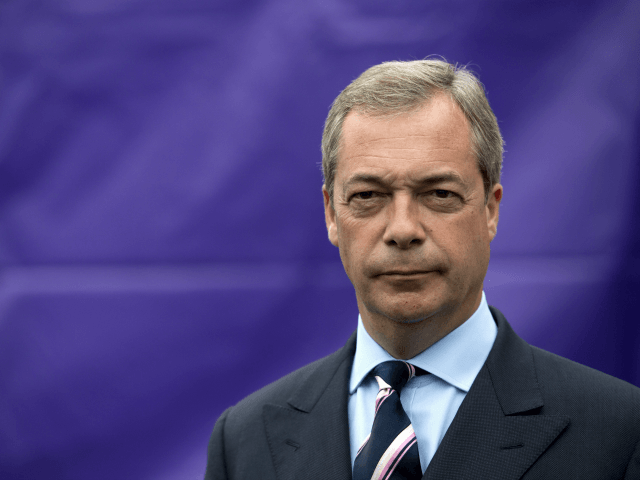Nigel Farage said he must make a “rational judgement” as to how he can “best help the Brexit process” when deciding whether he will stand in the upcoming general election.
“I came into politics because I believe in the Brexit cause passionately,” the former leader of UKIP told Breitbart News Daily. He said he has to make a decision about whether he can best serve that cause “sitting in the House of Commons on the back benches” or “staying as the leader of a group in the European Parliament, able to do battle up close with EU.”
“Clearly one would have visibility in the House of Commons but equally, the negotiations take place in Brussels over the next two years and the European Parliament has the right of veto at the end of the two-year process”, he told hosts, Breitbart News Editor in Chief Alexander Marlow and Breitbart London Editor in Chief Raheem Kassam.
On the topic of why Theresa May decided to hold a snap election, Farage said the Prime Minister is taking advantage of very favourable polling and looking to secure a mandate. But he also reminded listeners the Tories stand accused of breaking election spending rules in 2015.
He said: “I’m guessing that what pushed her was that in the 2015 General Election the Conservative Party pretty willfully broke spending rules in lots and lots of constituencies and they were facing, potentially, a whole series of prosecutions. Up to twenty MPs are facing reruns in their seats.”
The former UKIP leader also warned that while May is “selling herself as the ‘Great Brexit PM’, the Conservative leader could use the snap election as an “opportunity to soften the impact of Brexit”.
Outlining how a “soft Brexit” would look, Farage said:
“We’ve technically left, because we’re no longer part of the treaty, but we have a relationship a bit like Norway where we’re part of the European Single Market. We still have to obey all the regulations that are made and passed in Brussels and Strasbourg, there’s still a degree to which European courts have jurisdiction over our citizens, we’re probably still paying a contribution, or a membership fee of some kind, and freedom of movement would remain with a transition period of three or five years.
“We’d have voted to leave, but we’d be half out half in,” he said, summarising the situation.
Asked by Marlow what he thought of May having “ripped off the best parts of UKIP’s platform”, Farage said: “I think it’s a victory because both myself and UKIP have completely changed the whole landscape of British politics.
“But does [the Prime Minister] actually mean it or was she just saying it for short-term electoral advantage?” he added.
On the topic of the upcoming French presidential election, the iconic MEP said he believes Le Pen has a “genuine chance” against Emmanuel Macron, noting the “globalist, centrist” candidate, who has yet to hold any elected position, “has never been tested in battle”.
For the benefit of U.S. listeners, Farage was also asked to outline some of the differences between UKIP and the National Front.
He said:
Traditionally the Front National came with deep roots in Vichy France — very anti-Semitic, very chauvinistic and not particularly attractive to most of the outside world. To be fair to Marine Le Pen she’s come in as leader, she’s moderated it, she’s made it more sensible, she’s made people far less [scared] of it. And to be fair, her own position is now a sceptical, mainstream, moderate Eurosceptic position that is being held by more and more parties across Europe.

COMMENTS
Please let us know if you're having issues with commenting.